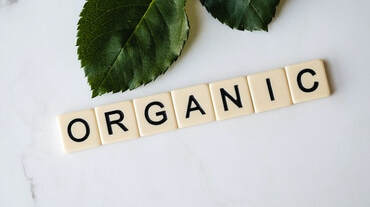
Today, in an attempt to clear up some of the confusion, I will tackle 5 common myths about eating organic foods, although some of these could also apply to organic items in other categories as well.
Myth #1: It's Too Expensive
I've shared my personal experience - including actual food budget and spending - with getting most of my food through organic CSA programs in a previous blog post, so I won't go into that all again here, although there have been a few updates since that post was written. In the interest of full disclosure I no longer get my milk through the CSA, although I'm currently looking into a local herd share program, and I now get the eggs through the veggie CSA twice a month so I do eat more eggs and spend a bit more. My CSA program has also added some other optional goodies such as cheese, and locally grown organic beans, so that has upped the cost a bit when I opt for those items. That said, I still think my spending on groceries is pretty reasonable for a largely organic diet.
I've recently finished reading an interesting book - Organic Manifesto, by Maria Rodale (yes, the granddaughter of that Rodale). In it, she posits that one of the main reasons we perceive organic food as being more expensive is that chemically raised foods are artificially cheap. If it weren't for government subsidies forcing the prices down in order to keep churning out more and more corn, soybeans, etc. on a mass scale, organic foods would actually be CHEAPER than their chemical counterparts for several reasons.
I've seen this argument a couple of times, and I'm not sure where they got their information from. Apparently there is some confusion as to whether organic food really is more nutritious or not. However, as in most instances where there is uncertainty as to the truth of something, I go with common sense. Since organic food is grown in soil which contains a full spectrum of nutrients from naturally composted materials, and plants draw their nutrients from the soil in which they grow, obviously it would stand to reason that plants grown in organic soil would contain more balanced nutrition than those grown in depleted soil fed heavily with only a couple of different minerals, as most chemical fertilizers are composed of. Right??
Nonetheless, there are a number of different studies on this, and some of their findings are conflicting, so officially I guess the jury is still out - although I stand by my reasoning!
However, regardless of whether organic food contains more vitamins, antioxidants, healthy bacteria, etc., there is absolutely no question that it's still better for you. According to a study by the University of Washington published in Environmental Health Perspectives, April 2008, people who eat organic foods decrease their pesticide intake by as much as 90%. In analyzing the urine samples of children eating organic foods versus chemically grown foods, the researchers documented a significant reduction in agricultural chemicals in the urine when switching to an organic diet - followed by a rise in chemicals when switching back. This difference occurred within one day of the dietary change, meaning that we can actually rid our bodies of many of these chemicals very quickly - just by eating clean organic foods!
And, as noted in Organic Manifesto, "certified organic products are the only foods available that have a government-backed guarantee that no chemicals, antibiotics, sewage sludge, or GMOs were used in growing or processing the foods."
So whether or not you believe organic foods are more nutritious for you, there is no doubt that they are less poisonous.
Be sure to check back next week for Myths 3, 4, and 5! Until then, eat clean, be healthy! :-)
Organically grown foods in a naturally biodiverse environment are better able to withstand these extremes, and require fewer inputs from outside, which also lowers costs. Interesting, and I never thought of it that way before, but it really makes a lot of sense. Not even considering the cost-balancing effects of supply and demand, a truly sustainable biodynamic organic farm in theory could be completely self-sustaining, requiring almost nothing from outside, and making all of its own fertilizer from the composting of plant and animal wastes. This truly would be much more cost effective than today's conventional chemical farming, and would provide realistically competitive prices in the marketplace. So it's actually not that organic food is "too expensive" - the truth is that chemical foods are too cheap!
For more on the worldwide and long-term potentially devastating impacts of this on our planet and economy, not to mention our health, check out Maria's book on Amazon.com. It's a short but eye-opening read.



 RSS Feed
RSS Feed